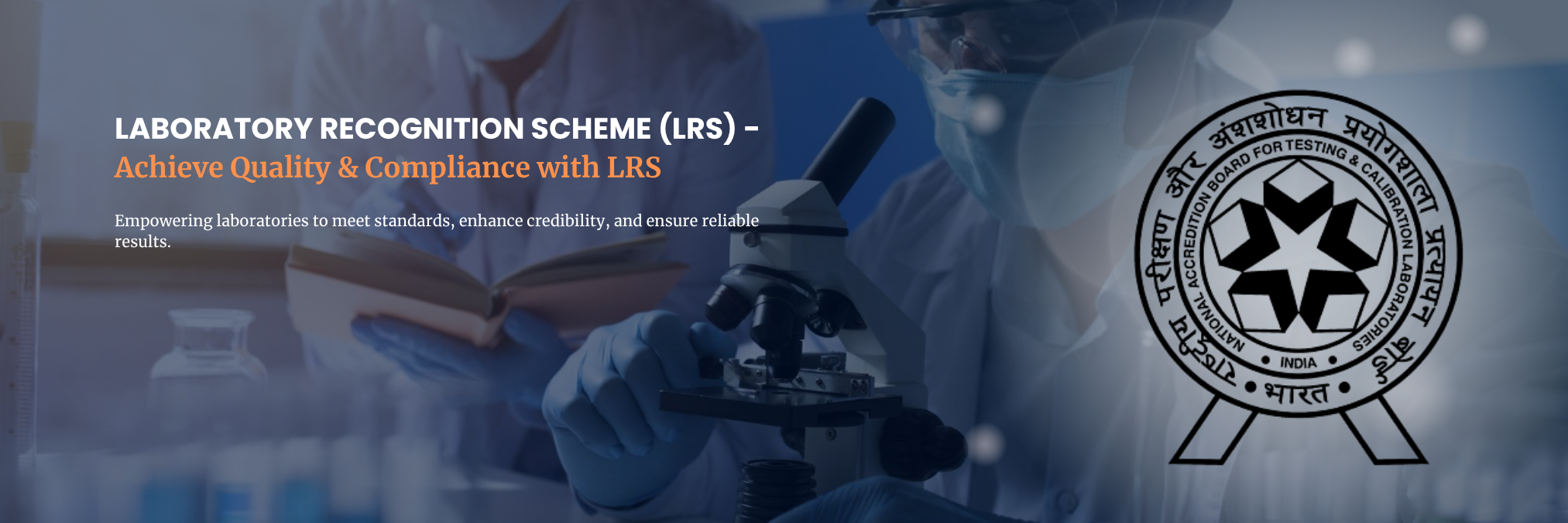

The Laboratory Recognition Scheme (LRS) is an initiative by the Bureau of Indian Standards (BIS) to recognize laboratories, both within India and internationally, for conducting product conformity testing. This scheme ensures that products meet the prescribed Indian Standards, thereby safeguarding public health and safety.
Established under the BIS Act, 2016, and governed by the BIS Rules, 2018, the LRS allows laboratories to be officially recognized for testing products against Indian Standards. The National Accreditation Board for Testing and Calibration Laboratories (NABL), an autonomous body under the Department for Promotion of Industry and Internal Trade (DPIIT), Ministry of Commerce and Industry, Government of India, provides accreditation to these laboratories in various fields such as Biological, Chemical, Electrical, Electronics, and Mechanical, in accordance with ISO/IEC 17025, 17043, and 17034 standards.
Laboratories seeking recognition under the LRS must fulfill the following criteria:
The Laboratory Recognition Scheme (LRS) is crucial for ensuring product quality and safety in the Indian market. Some key benefits include:
KMA Global is a trusted consultancy firm specializing in assisting laboratories in obtaining BIS LRS recognition. Our expert services include:
The Laboratory Recognition Scheme (LRS) is a program by the Bureau of Indian Standards (BIS) that recognizes testing laboratories for assessing product conformity as per Indian Standards (IS). It ensures that testing facilities meet the required standards and operate with competence.
Any testing laboratory, whether located in India or abroad, can apply for LRS recognition, provided it meets the required accreditation and infrastructure criteria.
To qualify for LRS recognition, a laboratory must:
Recognition under LRS offers multiple advantages:
The steps to obtain LRS recognition include:
LRS recognition is typically valid for three years, subject to renewal based on continued compliance.
Yes, BIS can suspend, withdraw, or revoke recognition if a laboratory fails to:
The duration varies based on application completeness, audit scheduling, and compliance status. Generally, it can take a few months from submission to final approval.
Yes, for a laboratory to conduct BIS certification tests, it must be recognized under LRS or be part of the BIS laboratory network.
KMA Global provides expert consultancy services for laboratories seeking LRS recognition, including:
The cost includes BIS fees for application, assessment, and surveillance, along with any accreditation expenses. The total cost depends on the laboratory’s scope, location, and compliance level.
Yes, international laboratories can apply for LRS recognition, provided they meet ISO/IEC 17025 accreditation requirements and other BIS criteria.
During the on-site assessment, BIS evaluates:
Yes, an LRS-recognized laboratory can apply for scope expansion by submitting additional accreditation documents and undergoing a BIS review.
You can start by contacting KMA Global, where our experts will guide you through the entire process, from documentation to final recognition.